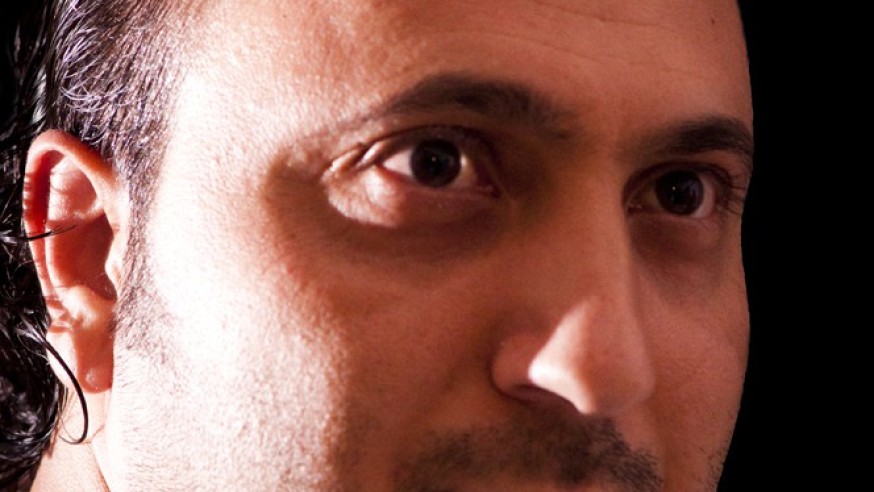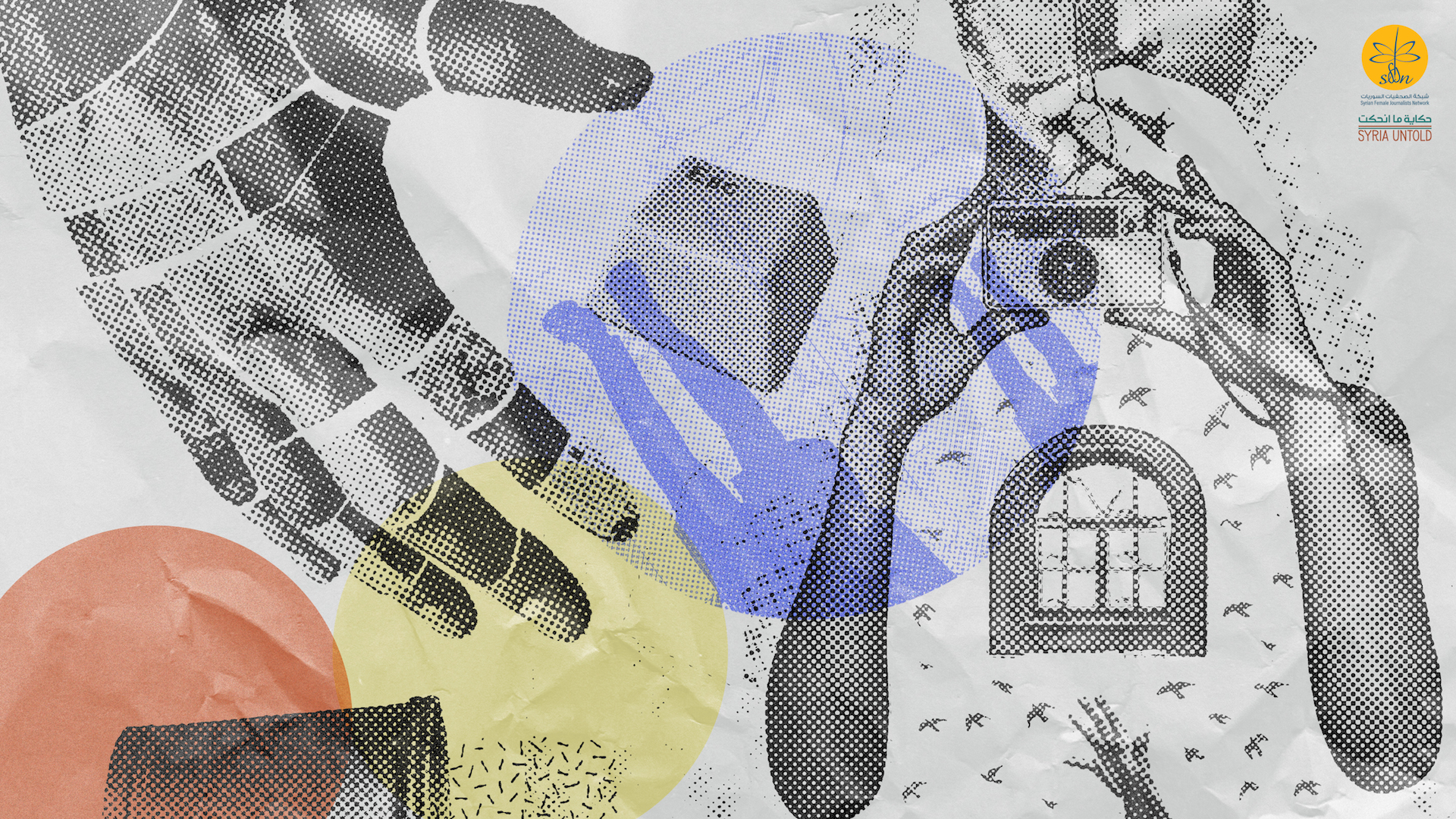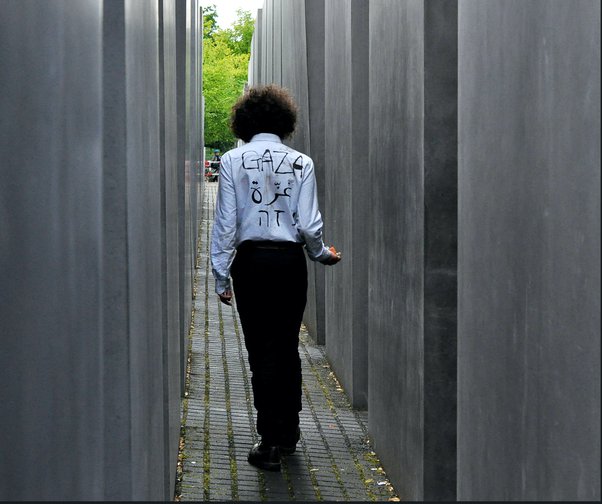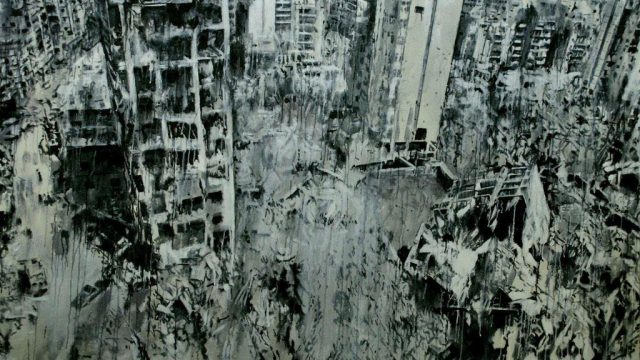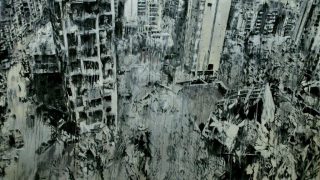Cities do not occupy a special place in my heart unless I find a space that I am fond of within them, and that space is none other than the cafe. I do not consider a city “my city” unless I encounter a specific cafe that I feel touches my soul and warms my heart like the taste of love.
This is how I fell in love with Paris since my first visit. Its sidewalk cafes resemble mermaids summoning you for love, or for death. Whether you live or die, when you sip that cup of coffee on its riverbanks while reading a book or writing a text, nothing else matters.
But my bonds with Damascus, Beirut and Berlin are totally different. If Paris is love at first sight, then the three other cities resemble a love at unexpected times. It simmers slowly and gently until it finally grips the heart and soul to the extent that separation becomes impossible without pain and the lingering, never-ending sorrows of passion.
The particular cafe that I end up falling in love with is a complicated issue, like chemical reactions whose consequences we memorize without totally understanding. My attachment to these cafes and passion towards them make my friends wonder, when I invite them there, “Isn’t there someplace better?” I would answer in the words of the founder of the meters and rhythms of Arabic poetry, Al-Khalil bin Ahmad al-Farahidi, who told his critics:
If you knew what I was saying, you would have pardoned me
or if you knew what you were saying, I would have blamed you.
But, you were ignorant of the context of my goings-on, thus blamed me
and I knew your ignorance, thus pardoned you.
There isn’t necessarily a resemblance between our first, second and third loves. The same goes for the cities and cafes we fall for, as a world of difference exists between them, like the difference between heaven and earth, fire and water, countryside and the city. Yet they have things in common, just like water in an ocean is one and the same. The chemistry of love alone explains this passion, which makes us want to possess women, places, cities and cafes we love; referring to them as “my love, my city, my cafe.”
A place for the heart in Berlin
Although almost all my friends lived in Berlin, it remained for months after my arrival a strange city, distant from my heart and soul. That was until I spotted Einstein cafe. I fell in love with it.
Despite the multitude of Einsteins in Berlin, because it has several branches, I grew fond of only one. It is on Budapester Str. 38-50 near Bikini Berlin, specifically the table to the right of the cafe’s crystal façade, and the chair which allows you to watch the passersby coming from the zoo or dropping by from a famous bar in the area. As soon as I sat in the chair, I felt I was in my place. Suddenly, my feeling of estrangement vanished and my heart was filled with joy. My soul rejoiced like it used to in Damascus for that cafe.
Now, I always sit in my regular spot after ordering an espresso and starting to read and write. In the meantime, my eyes shift from the book to the street, from a woman passing by and another I had seen in my dreams or who crossed between realities, suspended between then and now, when I would sit in other cafes in other cities, looking at other passersby and women whose shapes still resonate in my memories like a jingling anklet.
One time, in Damascus, while I was sitting in a cafe, a girl passing by smiled at me and left. I still retain her smile in my fresh memories, as though I have only just seen it. Two days later, I spotted that same girl standing by the traffic lights biting her finger, and poetry came flowing from my veins.
do not bite your finger
my heart aches
come back, rose of love
my heart weeps
My relationship with cafes shapes my relationship with cities. I am the kind of person who tends to be consistent in frequenting places, even though I move often. But, many are of fleeting passage, and one only visits them for a quick bite or visit. They do not leave a mark in the heart or soul. However, some other places deserve passion. They have an aura of sanctity that nobody else feels and chemistry that others do not understand no matter how much you explain it to them. How can I possibly explain to them that it is here that thoughts ferment in me and inspiration comes to me, and that the first harbingers of novels I think of writing bloom here and their characters grow and develop while I stare into the space-time that Einstein talked about? How do I explain this to my friends who always blame me for loving these cafes? But I just tease them, and tell them my cafes are like a lover’s embrace.
When I had to take my one-way trip to Beirut, I realized that I loved Damascus more than I expected and that I adored it to the extent that the blood running in my veins always called for it. Is this because the woman we lose becomes the most desirable? And a lost poem becomes the loveliest?
Energy specialists say that sitting in a specific spot in the house, on a specific chair, means that a positive energy grows there that interacts with your senses and soul. You feel uneasy if you sit in another chair in the same house. I feel that too. When I go to the cafe and I find the spot that revives my soul occupied by another person, I feel annoyed. Even worse, I can’t read or write comfortably. I feel a malaise of sorts as my eyes spy on my chair, begging the seated person to get up. As soon as that happens, I quickly gather my things and sit in my spot before anyone else beats me to it. My move carries an apology to the chair and table and reassurance that I am back. In Damascus’ al-Rawda cafe also, I always had a date with another similar chair overlooking al-Abed street.
‘The ear loves before the eye sometimes’
I arrived in Damascus from a village on the Syrian coast to pursue my university studies at the end of the 1990s. I was a stranger upon my arrival. I was poor and had no money except for the study allowance my parents sent me. I had a rural accent that city people weren't fond of; at times because it symbolized the government they hated, and at other times because of class considerations, as they believed they were the upper class and we were lower. I was also culturally poor.
Raqqa, at the center of the universe
16 August 2020
The drama queen of quarantine
23 June 2020
In the village where I was born, the world was small and simple. We only had a school and the street where we played with what was available—a ball we would create from remaining threads and textile, or seal in a tightly closed plastic bag to last us as much as possible before being ripped apart by our feet. We used sticks as guns in imaginary war games. We did not have a playground, a television or actual toys (I got my first real football when I was 12). We only felt this routine and extreme poverty when other kids visited from Damascus.
The villagers who worked in Damascus returned in summer to take care of their lands, gather their crops and visit their families before returning to the city. We would meet those kids who wore clothes that did not resemble our worn-out ones, and playing with toys whose names we only became familiar with after hearing their stories about Damascus.
They talked about malls that had everything, playgrounds where there were swings, slides and toy trucks. They told us about markets, streets, cinemas, films, schools. My attachment to Damascus and my love for it stemmed from these childhood moments and from the mouths of “Shawams,” the name we gave to kids visiting from the city. As poet Ibn Burd says, “The ear loves before the eye sometimes.”
When I would place my head on the pillow as a child, before giving in to sleep, my dreams would wander to Damascus: its streets, gardens, markets, malls, playgrounds. I shaped my own image of Damascus to fit my dreams and imagination.
But I was never to find that Damascus, even when I actually reached the city. The Damascus I dreamt up in my childhood imagination is uncharted and unknown. It disappears in the chambers of memory and only reveals itself occasionally, in rare and intimate moments. It has resurfaced from my memory and revived itself in Berlin, where I am writing this text from my seat in Einstein cafe.
My hidden image of Damascus has come out to watch the real Damascus that has been lost, in search of common grounds or a moment of warmth. Here we are: My hidden Damascus and I, and my Berlin, looking out the window of Einstein cafe at al-Rawda street in Damascus, where I would sit and look out at the women and the country I never expected to leave. I am suddenly overcome by yearning intermixed with regret, the kind of regret we feel when we realize that the woman we love has been lost forever, knowing that we never cared about her enough when she was right there before us.
I knew very well that I loved and adored Damascus when I lived there, and that I had chosen it as my eternal home, to the extent that if people could choose their hometowns in the next life, I would choose Damascus. I believe I am Damascene at the core. Still, when I had to take my one-way trip to Beirut, I realized that I loved Damascus more than I expected, and that I adored it to the extent that the blood running in my veins always called for it. Is this because the woman we lose becomes the most desirable? And a lost poem becomes the loveliest?
When I first arrived in Damascus back in the ‘90s, I had nothing to my name, except for the books I read and the names of novelists, poets and writers. I knew that some of them lived in Damascus, and I began my search for them.
Intimacy is not found in Einstein cafe. The customers have no connection with the cafe. Their passage is a transient one imposed by the fast pace of life and capitalism. There are no regulars, no intimacy between the waiters and the coffee drinkers, and customers do not converse with one another.
My favorite at that stage was Muthaffar al-Nawab, the revolutionary Iraqi poet who was pursued by all Arab regimes, which he satirized in his poems. I knew he sat in Havana cafe sometimes—a cafe known to be leftist in the past in Damascus. Although it was expensive, I gathered my courage and went in. I ordered a shisha pipe with a cup of tea, and the price, as I recall, constituted a significant percentage of my monthly budget. Still, I sat there, waiting for my favorite poet to arrive.
Once a month, I would sacrifice part of my budget for a one-sided tea appointment, until one day, I felt real intimidation when only three tables were separating us. It was 5 pm. He sat there, and he ordered green tea and began reading his newspapers. I never dared approach him. Three other tea dates went by before I built up the courage to introduce myself, and before we became friends.
But, what I recall well is that I was never comfortable sitting in that cafe. The prices were too high, not to mention that the waiters were too insistent to the extent of bothering me. As soon as I finished my beverage, they would come up to me, who could not afford to spend much, and ask, “What would you like to drink?” Later on, I only passed by the cafe. If I found Nawab sitting at his table, I would go in and sit with him, if he had time. If not, I would just continue walking. That cafe didn’t match my soul; we didn’t have any chemistry.
Roaming the earth for a familiar place
One time, I had to meet a friend at al-Rawda cafe in al-Abed street in Damascus, based on his request. I was not familiar with the cafe yet. As soon as I went in, I felt overwhelming joy. My heart was floating in bliss, like a prophet who has just been inspired. It was the same feeling I got when I found my own chair in Einstein cafe in Berlin, where I am writing now (although today, June 10, 2019, I am sitting in another chair because somebody is occupying mine, and I am waiting for them to leave.)
That cafe became my home in Damascus. I later realized it was also the home of Damascus’ intellectuals and artists.
When I was alone, with no friends around, I would always choose the spot that overlooks al-Abed street right next to the glass pane. That was my favorite seat. As soon as I sat down, the shisha and concentrated tea in a small cup would be served. My eyes moved between the books and life unfolding before me like a TV drama, one whose thousandth episode I’m watching now in Berlin. In Damascus, only the waiter knew my secret with the chair. He never asked me anything. As soon as he saw me sit in a chair that wasn’t mine, he’d come up to me and say, “When the customer leaves, I will book the table for you, don’t worry.” Indeed, he would delay serving me my shisha until my seat was vacant, unless the customer had just sat down and would spend a long time.
Einstein cafe in Berlin does not resemble al-Rawda cafe in Damascus, except for the spiritual wave that my imagination bestowed upon it. Al-Rawda was built in 1938, and it housed in its corners and air the history of Damascus. Rare are the cultivated people, artists or politicians who have not set foot in it. The cafe is a few meters from the Syrian parliament, and it captures the taste and spirit of Damascus. It is a stretch of sky in a mundane world, with its 600 chairs and 150 tables. Anyone who has not visited the cafe would not expect that its walls engulf ever more cafes. Each has its own regulars, chairs and tables. Each chair has its own customer, and each customer has his story.
One part overlooks the street; another has an open ceiling and the cultured class of Damascus frequents it. Artists and actors prefer the inside part. Sometimes, regulars of the different parts of the cafe mingle. In the morning, the old regulars of the cafe occupy its premises, from retired writers and politicians who are no longer in the game, to political prisoners who have become unknown, and political refugees and former officers released after long years in prison for merely thinking of staging a military coup. At noon, the cultured class and the unemployed flock to the cafe to play chess or backgammon. In the afternoon, employees who have just left work join in, and in the evening and early hours of the night, there are barely empty seats in that beloved and familiar noise, like a city within a city. In this chaotic, yet organized setting, as per rules that its regulars are familiar with, several intimate moments exist and create a connection between the customers and the employees. You can find intimacy between the girls and boys who have come here looking for love or a fling.
The intimacy creates a bond between the cafe’s customers. Any person can sit at your table and start a conversation. Friendships are born in this cafe, and they end as soon as you leave the door or because of continuous gossip.
Intimacy is not found in Einstein cafe. The customers have no connection with it. Their passage is transient, imposed by the fast pace of life and capitalism. There are no regulars, no intimacy between the waiters and the coffee drinkers, and customers do not converse with one another.
In Einstein, customers are only passing by and rarely return or develop a familiar bond withthe cafe. In al-Rawda, customers are passionate. They come seeking a moment of love. The geography of the place helps, as the cafe resembles a Damascene house escaping the space of modernity.
When I stare at the faces of waiters in Einstein cafe, I see in them the only resemblance with al-Rawda. Their features tell a story of migration. They are migrants, or sons and daughters of migrants. They are university students looking to make ends meet, to face the hardships of life and continue their studies. They are poor, and in their poverty, they resemble the poor of al-Rawda cafe in Damascus, most of whom were Arabs, Kurds and others, who worked from morning until evening to keep the shadows of poverty at bay.
Einstein cafe is closer in spirit and form to my cafe in Beirut, The Coffee Bean, even though all three had one thing in common–their poor employees. I lived in Beirut for two years before moving to Berlin, and it therefore holds a special place in my heart. But there isn’t enough space to talk about Beirut and its cafe here, and I hope I can write about it when Beirut’s inspiration overwhelms us, or when it heals from the many sorrows and sadnesses burdening its soul.
My friends who stayed in Damascus tell me al-Rawda it is no longer the cafe I fell in love with. It has become strange, even to those regulars who remained loyal to it. In losing the cafe I love, I have lost my Damascus. I have lost my spot in Beirut ever since Coffee Bean shut its doors. I only have Einstein cafe now. How long will you stay with me, Einstein?


